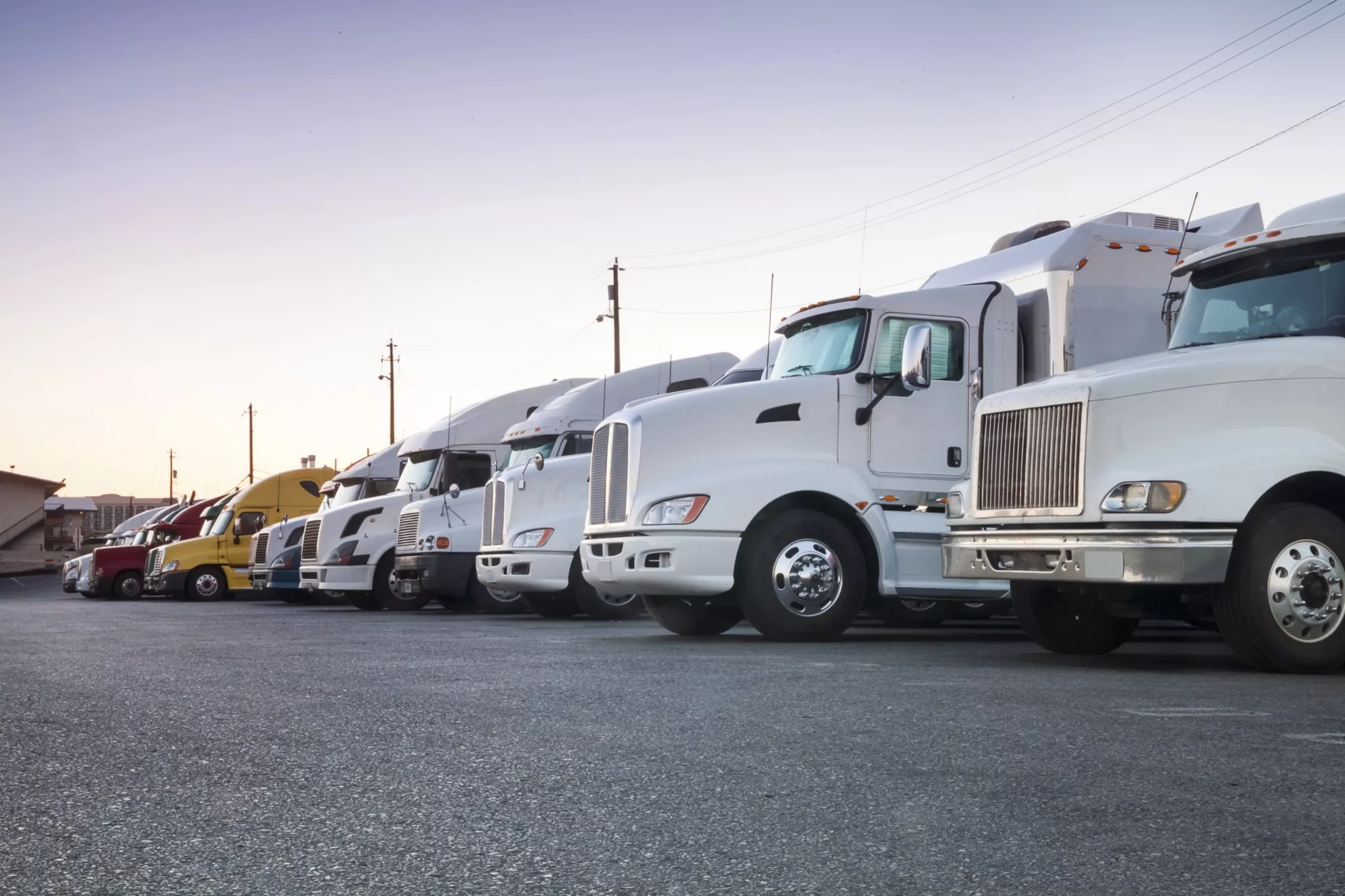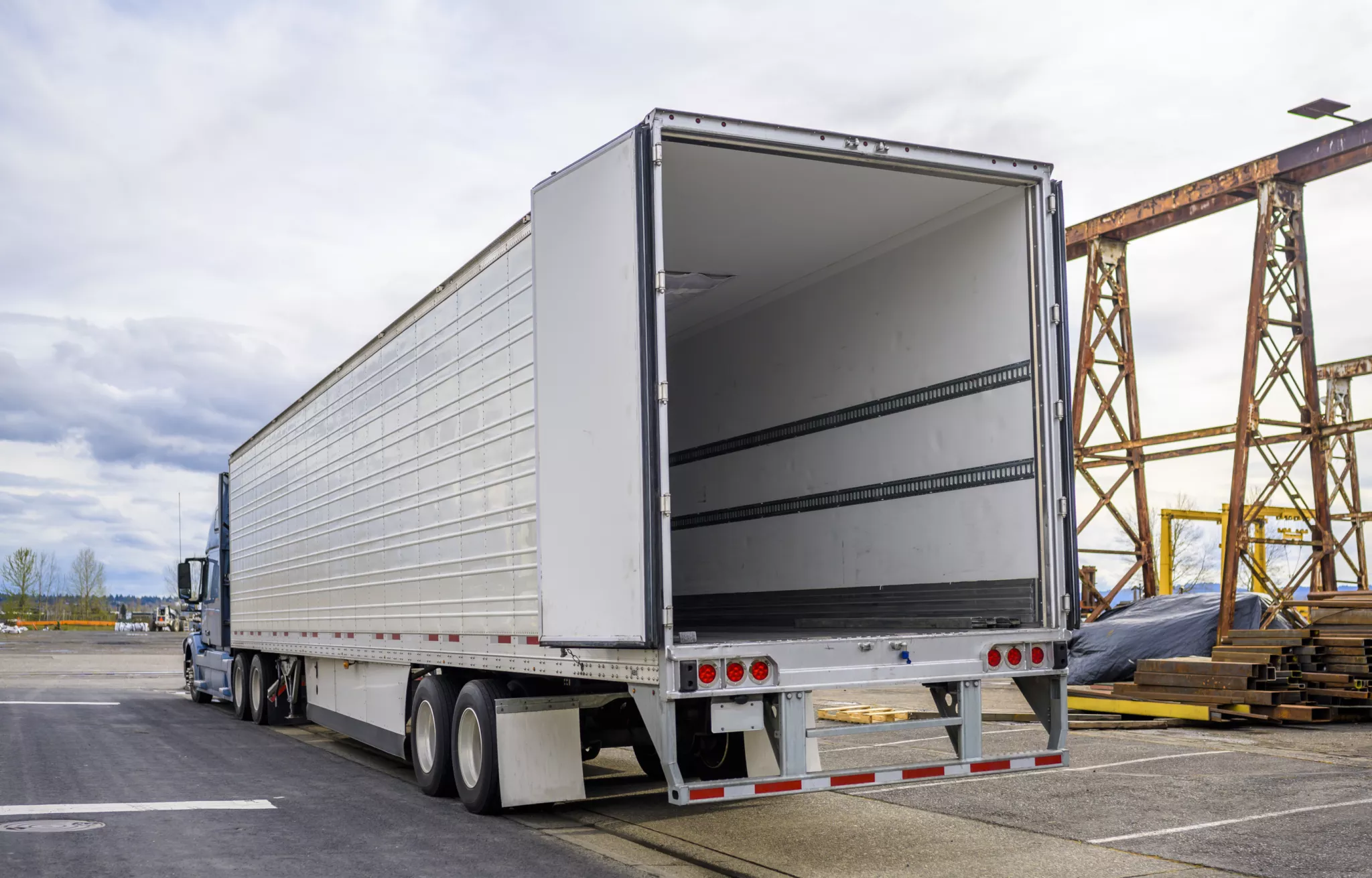Freight factoring is a frequently used service in logistics. It provides trucking companies with immediate cash flow. The service has recourse and non-recourse options, offering unique advantages with each of them. The article reviews each types specifics, their differences and provide an instruction on how to choose the best option for your company’s financial needs.

What is recourse freight factoring?
Recourse factoring offers an opportunity to a factoring company to obtain immediate cash through an invoice sale to a factoring company. The funds usually are used to cover fuel and maintenance costs and driver wages.
Upon the delivery completion, a trucking company provides its client with an invoice. It’s purchased by a factoring company for 70-90% of the total amount. A factoring company then obtains the payment from a customer of a trucking business.
The key aspect of this service is the recourse part. In case of clients’ financial problems and non-payment, the trucking company bears the risk of non-payment. In particular, it must purchase the invoice back or replace it with another one with equal value.
What is non-recourse freight factoring?
Non-recourse factoring also provides immediate funds with the invoice sale. Its main aspect is that the factoring companies take on the financial risk. The factoring enterprise absorbs the loss if the customer doesn’t pay. This function may be an advantage for those companies that seek to minimize non-payment risk.
Non-recourse factoring works with the following principle. The trucking company delivers an invoice to the client and sells it to the factoring company, as in the previous case. The factoring company requires a higher fee as it absorbs the loss of the client doesn’t pay. This offer includes additional services, such as checking customers’ credibility.
Differences between recourse and non-recourse freight factoring
Both services involve an immediate cash flow for trucking companies without waiting for the customers to pay. As we already reviewed, the main difference is who assumes the risk of non-payment and the associated costs. Understanding this and other aspects helps make the best decision for your company’s financial needs.
- Risk of non-payment. Recourse factoring involves higher risk for the trucking company if the customer doesn’t pay. Non recourse freight factoring foresees lower financial responsibility. If the client can’t pay, the factoring company absorbs the loss.
- Cost. Recourse factoring provides lower fees, ensuring a more cost-effective solution. The tracking company should be sure of the customer’s ability to pay. Non-recourse factoring foresees higher payment due to the additional risk for the factoring company.
- Customers creditworthiness. If the trucking company decides to choose recourse freight factoring, it has to conduct a check of its customers’ credibility to be sure of invoice payment. In case of non-recourse factoring, the factoring company conducts the check.
- Suitability. The main aspect of choosing between these options is customers’ credibility and financial stability. Recourse factoring is a better solution for tracking companies that are sure of their customers’ financial stability. On the contrary, non-recourse factoring is more suitable if a trucking company needs to minimize the risk of non-payment.
- Financial protection. Recourse factoring doesn’t provide protection against customer insolvency, obligating the trucking companies liable for the invoice amount. Non-recourse factoring offers financial protection and financial stability.
Thus, the choice of recourse and non-recourse factoring depends on the business’s risk tolerance, customers’ reliability, and financial needs. The cost-effectiveness of recourse freight factoring comes with non-payment risk, while non-recourse offers financial protection and still requires higher fees.
Example: Recourse vs Non-Recourse factoring
For a better understanding of the difference between recourse and non-recourse factoring, take a look at a detailed example. The trucking company made a decision to apply for freight factoring to cover operational costs.at first, we review recourse factoring.
The company sells the $60,000 invoice to the factoring company.
- Advance payment. The factoring company pays the trucking business with 85% of the invoice.
- Fee structure. The fee totals 3% of the invoice amount. The factoring company will obtain it from the remaining 15% of the invoice provided after the customer’s payment.
- Customer payment. The customer of the trucking company pays the full amount of the invoice – $60,000. Then, the factoring enterprise issues the trucking business the remaining amount, minus the fee.
- Risk management. If the customer fails to pay the invoice, the trucking company will be responsible for the invoice purchase or replacement. Thus, the trucker retains the risk of non-payment but benefits from lower fees.
The main difference in non-recourse factoring will be the fee amount.
- Advance payment. The trucking company obtains 85% of the invoice value after its sale. The same as in the previous scenario.
- Fee structure. Since the factoring company takes on financial risks, the fee is higher and totals 5% of the value. The fill will also be deducted from the remaining 15%
- Customer payment. In 30 days, the customer pays the invoice to the factoring company. Then, the trucking company obtains the remaining balance minus the fee.
- Risk management. In case of the customer defaults on the payment, the factoring company absorbs the loss. Thus, the trucking company benefits from financial protection still pays a higher fee.
Comparative analysis
| Aspect | Recourse factoring | Non-recourse factoring |
|---|---|---|
| Fee | $1,800 | $3,000 |
| Risk | The trucking company retains non-payment risk | The trucking company is protected against the risk of non-payment |
| Final payment | $7,200 | $6,000 |
| Suitability | Suitable in case of a customer’s strong credit history | Better if there are concerns about the customer’s financial stability |
Choosing recourse or non-recourse factoring
Evaluating recourse vs non-recourse factoring requires a thorough analysis of several factors.
The best choice will be individual to each trucking company’s circumstances. It includes the company’s financial situation, risk tolerance, customer creditworthiness, and the cost-benefit analysis of each service. There are key considerations to help truckers make a suitable decision for their businesses.
- Assessing customer creditworthiness. It’s one of the main factors in choosing between recourse and non-recourse factoring. In the first case, a trucking company has to be sure of the customers’ financial stability and cooperate with clients who have a proven track record of invoice payment on time. Companies need to conduct credit assessments and maintain a good network with their clients. On the other hand, non-recourse factoring is better if there are concerns about customers’ ability to pay. The service protects the trucking company from non-payment as the factoring company takes on the credit checks.
- Financial needs and risk tolerance analysis. Companies that are okay with some risk level and seek to reduce costs may choose recourse factoring. This option provides a stable cash flow but is still suitable for businesses that can handle occasional financial uncertainties. Non-recourse factoring better suits companies needing higher financial security and seeking to eliminate the risk of unpaid invoices. In particular, this service is beneficial if the business operates in a volatile market or with customers with uncertain financial health.
- Cost vs benefit rates. Lower fees mean revenue from the invoice for the trucking company. It’s important for businesses with tight profit margins or if they want to maximize the immediate cash flow. Still, the companies have to consider the potential cost of unpaid invoice purchases as part of their overall financial strategy. Non-recourse factoring foresees higher fees, still, it’s justified by the reduced risk. Thus, analyzing the benefit of financial protection against the cost is necessary.
- Operational considerations. When choosing recourse factoring, the companies have to manage the buy-back or replacement of invoices. It requires efficient accounts receivable management and setting aside reserves. Thus, it’s a suitable option for businesses with effective financial management systems. Non-recourse factoring reduces the administrative work for the trucking company, allowing to focus on the core activities. It also streamlines operations and reduces workload for smaller enterprises or companies with limited resources.
- Long-term strategy. The choice of factoring services should align with the company’s goals, as it is an important element of the long-term business strategy. If the strategy’s core is growth focused on cost-efficiency and leveraging customer bases, a company may prefer recourse factoring. The lower costs contribute to better financial health over time, maintaining strong relationships with customers. If the main goal is to grow or expand into new markets, non-recourse factoring is the better option. This option supports an aggressive growth strategy and protects against potential losses.
Choosing between two recourse options requires evaluating customer creditworthiness, financial needs, risk tolerance, and desired business strategy. By considering these factors, you can select the factoring that best aligns with their operational needs and strategic objectives, ensuring financial stability and business success.
Conclusion
Deciding between recourse and non-recourse factoring requires significant analysis. Recourse factoring offers cost savings while involving higher financial risk. Non-recourse factoring provides protection from financial risks that come with higher fees.
Thus, this decision requires assessing customer creditworthiness, assessing financial needs, and analyzing the cost-benefit ratio. Whether you prioritize lower fees or lower risks, such information will help you make the best choice for your business.
If you want to ensure safety and compliance with invoice payment, contact Logity Dispatch! Logity Dispatch has teamed up with professional factoring companies to provide our clients with services that can make all the difference in how they do business.







